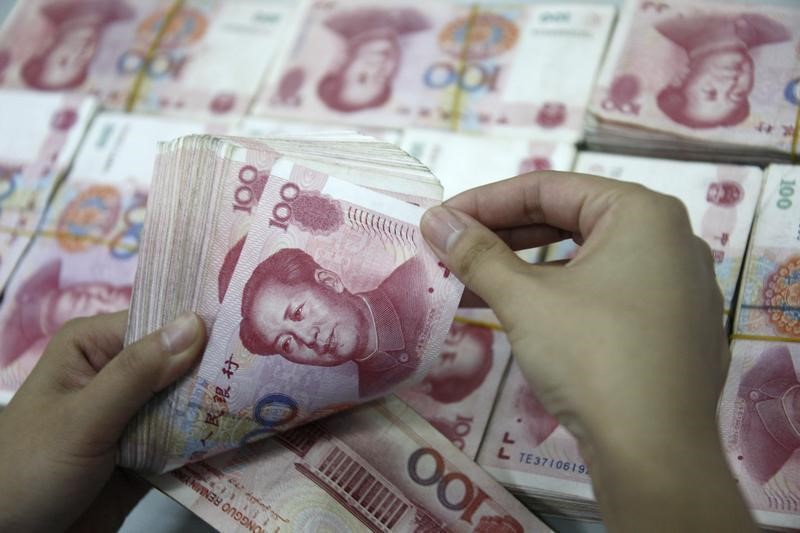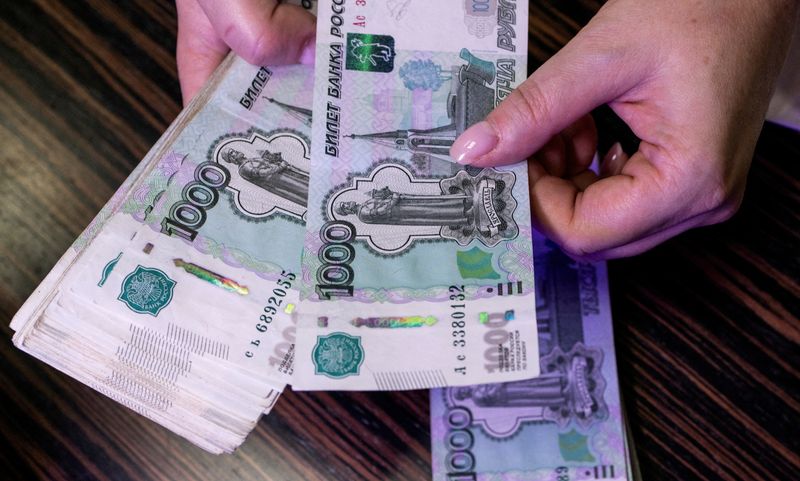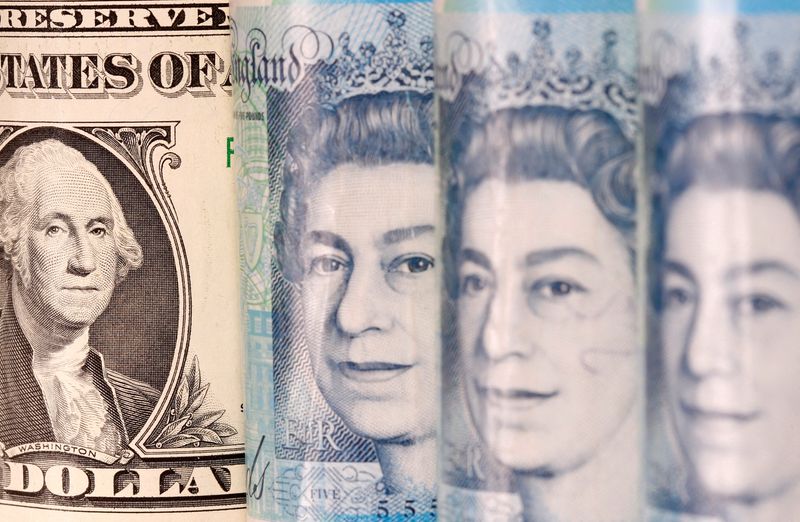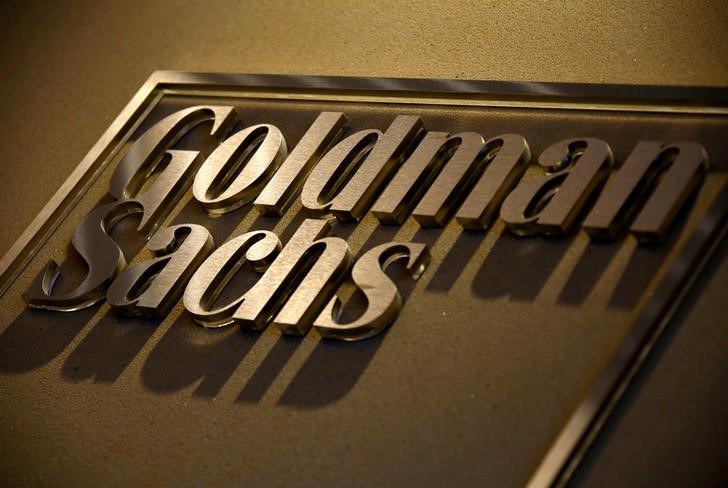Surging dollar pressures peers as further Fed cuts in question
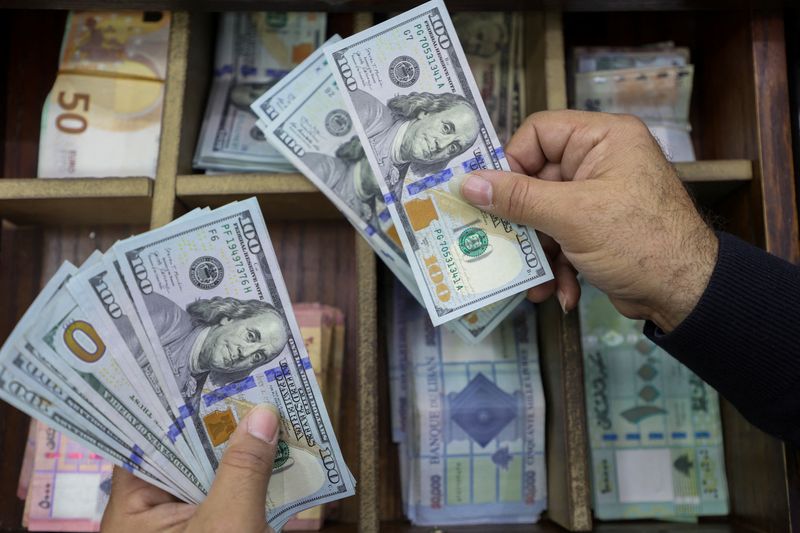
By Rae Wee
SINGAPORE (Reuters) -The dollar charged higher on Monday and drove its peers to multi-year lows after a blowout U.S. jobs report underscored the strength of the world’s largest economy and muddied the outlook for further Federal Reserve rate cuts this year.
The greenback surged to its highest in over two years on Monday against a basket of currencies to peak at 109.98, extending a rally from last week.
Trading was thinned in the Asian session with Japan markets closed for a holiday, but nonetheless moves in the foreign exchange market were volatile and other currencies notched fresh lows on the back of the dollar’s strength.
The euro hit its weakest level since November 2022 at $1.0275, while sterling was one of the biggest losers as it slid more than 0.5% to a 14-month low of $1.2128
The pound has been under pressure by concerns at home over rising borrowing costs and growing unease over Britain’s finances. It tumbled 1.8% last week.
Friday’s data showed U.S. job growth unexpectedly accelerated in December while the unemployment rate fell to 4.1% as the labour market ended the year on a solid footing, leaving traders heavily scaling back bets of Federal Reserve rate cuts this year.
Markets are now pricing in just 27 basis points worth of Fed rate cuts this year, down from roughly 50 bps at the start of the year.
With Wednesday’s reading on U.S. inflation up next, any upside surprise could threaten to close the door on easing altogether. A slew of Fed officials are also due to speak this week.
“This latest round of data underlines the fact that U.S. economic exceptionalism remains a key market theme to start 2025,” said Nick Rees, head of macro research at Monex Europe, of the nonfarm payrolls report.
“The U.S. labour market has stabilised but is not continuing to unwind, and that combined with upside inflation risks stemming from the new (Donald) Trump administration … should support an extended pause to easing by the FOMC.”
Adding to expectations of a less aggressive easing cycle is the view that Trump’s plans for hefty import tariffs, tax cuts and immigration restrictions could stoke inflation. He returns to the White House in a week.
Elsewhere, the Australian dollar sank to its weakest level since April 2020 at $0.6131. The New Zealand dollar last traded 0.05% lower at $0.55525, languishing near a more than two-year low.
BEIJING STEPS IN
The yuan, meanwhile, bucked the global trend and rose on Monday, after Beijing stepped up efforts to defend the weakening currency by relaxing rules to allow more offshore borrowing and sending verbal warnings.
The onshore unit rose marginally in the wake of the announcements and was last at 7.3318 per dollar, though it was still languishing near a 16-month low.
Gains in the offshore yuan were more pronounced as it rose more than 0.15%. It last stood at 7.3535 per dollar.
Monday’s moves by the People’s Bank of China (PBOC) follows that of Friday’s, where the central bank suspended treasury bond purchases, briefly lifting yields and spurring speculation it is stepping up defence of the yuan.
“It looks to be a follow up from last week’s move to temporarily halt its bond purchases alongside a stronger fixing,” said Christopher Wong, a currency strategist at OCBC.
“The PBOC is doing whatever it takes to maintain RMB stability.”
The Chinese currency has come under renewed pressure in part due to investors’ disappointment over the lack of further stimulus from Beijing to shore up its struggling economy.
Separate data on Monday showed China’s exports gained momentum in December while imports recovered, though markets hardly reacted to the better-than-expected figures, as worries grow over the outlook for Chinese trade on the back of Trump’s impending return to the White House.
Elsewhere, the yen similarly rose 0.1% to 157.53. The yen’s decline was mitigated by news that Bank of Japan policymakers could raise their inflation forecast at a policy meeting this month as a prelude to hiking rates again.
